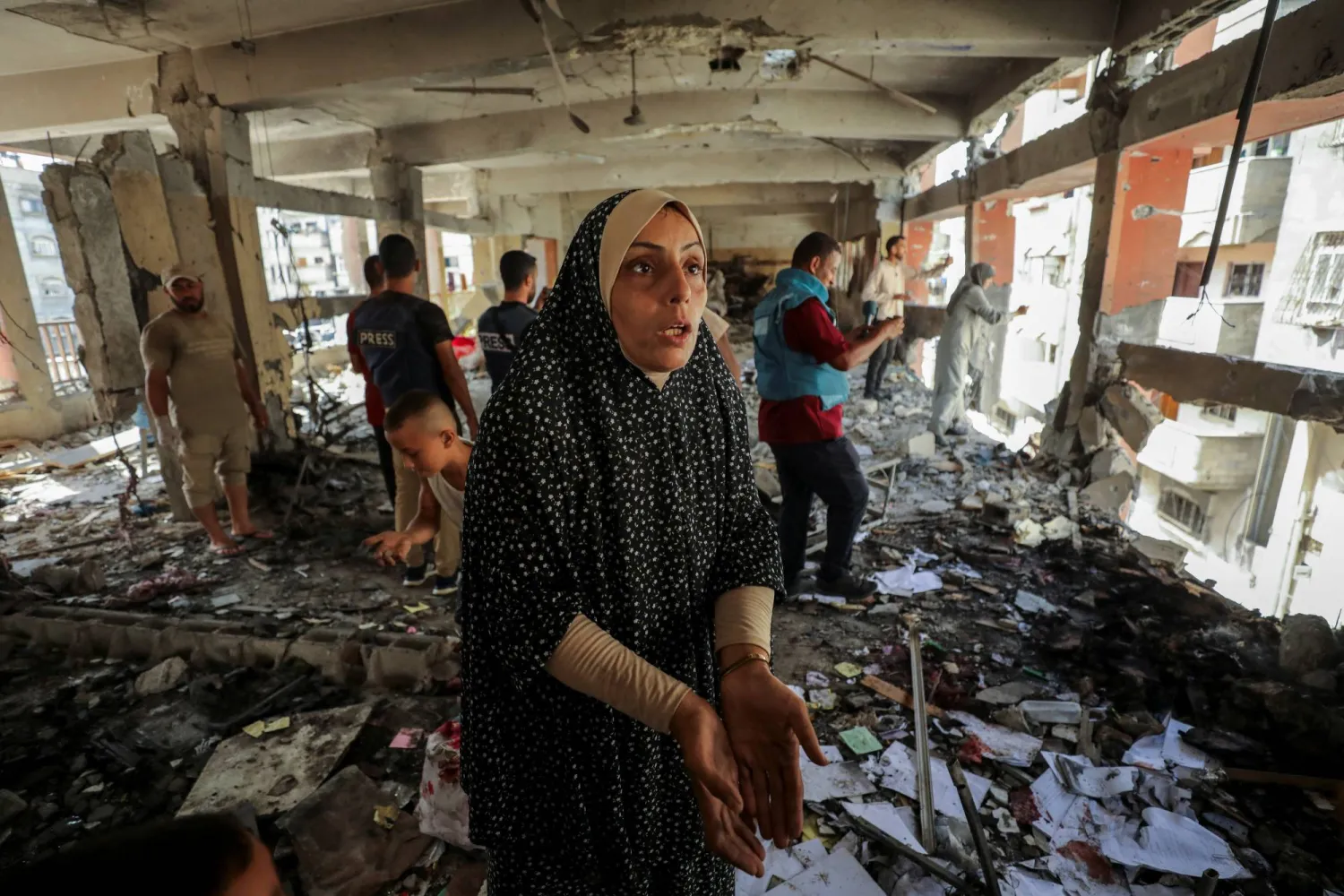In a year of war between Israel and Hamas, the people of Gaza have lost nearly everything: their loved ones, their homes, their careers and their dreams.
AFP spoke to a student, a paramedic and a former civil servant in Gaza, to hear how the conflict has destroyed their lives.
Here are their stories:
The student stopped in his tracks
Fares al-Farra, 19, was as brilliant at school as he was ambitious.
Two months before October 7 last year, he graduated with top marks and enrolled in Gaza's University College of Applied Sciences to study artificial intelligence and data science.
"I had many ambitions and goals, and I was always confident that one day I would achieve them," he said.
Days after Hamas's attack sparked the Gaza war, the Israeli military bombed part of the university.
Farra and his family fled their home in the southern city of Khan Yunis as it became a battleground, forcing them to shelter for months in a makeshift camp.
They returned home when Israeli troops withdrew from the area, only for it to then be bombed, demolishing the walls, breaking Farra's arm and killing his close friend Abu Hassan.
"He always took care of me," Farra said of his friend, who experienced with him forced displacement. "He was a good person."
The hardship of war has chipped away at Farra's optimism and his hopes for an education.
"It feels like all paths are closed," he said.
He fears his dreams will no longer be a priority once the war ends.
"There will be more basic needs" to fulfill, he said.
Still, he said he longs for an end to the conflict, and that he can "achieve (his) dreams and goals".
Paramedic and mother
Maha Wafi, 43, said she "really, really loves" her job as a paramedic in Khan Yunis, because she finds meaning in being able to help others.
"We go to the people to tell them: 'we hear you'," she said.
She also loved her life with Anis, her husband of 24 years, their five children and their beautiful house.
But the war forced her family to flee their home and seek shelter in a camp, just as the flow of wounded and sick increased due to the relentless bombardment, piling pressure on Gaza's poorly equipped medical workers.
Then, in early December, Wafi's husband was arrested. She has not seen him since.
She worries for her partner, but she must face the hardships of war alone. She takes care of their five children while continuing to work as a paramedic.
"You're living in a tent... you have to bring water, fetch gas, light a fire and deal with the hardships of everything," she said.
"All of this is psychological pressure on a working woman," Wafi said, sitting by her ambulance, before scrubbing blood from its floor.
During the war, she has seen people killed and maimed. She narrowly escaped death when a strike hit a vehicle right next to her ambulance.
All she longs for now, she said, is for her husband to be released, and for life to go back to the way it was before the war.
"I don't want anything more than how it was before October 7," she said.
The civil servant turned beggar
Until October 7, Maher Zino, 39, lived a life of "beautiful routine" as a government employee earning what he described as a decent wage.
Together with his wife Fatima, they were raising their three children in Gaza City.
A year on, they have been displaced "so many times that it's hard for me to count", he said from his shelter in an olive grove in central Gaza.
Moving from Gaza City to Khan Yunis in the south, to Rafah by the Egyptian border, and then back to central Gaza, the family had to start from scratch each time.
"Set up a tent, build a bathroom, buy basic furniture, and find clothes because you've left everything behind," he said.
Sometimes, they were able to find cover before nightfall.
Others, they've had to sleep on the street, said Zino, who said he'd "never needed anyone" before the war.
In the shelter they now live in, Zino and his wife have managed to create a semblance of domestic life with a place to sleep, a water tank and a makeshift toilet.
He, too, said he wished things could go back to the way they were before.
"I became a beggar," he said, pleading for blankets to keep his family warm and searching "for charity kitchens to give me a plate of food just to feed my children".
"That's what the war did to us," he said.
Bereaved and Destitute: Gazans a Year after October 7

A Palestinian woman reacts as she inspects the damage to a school sheltering displaced people after it was hit by an Israeli strike, amid the Israel-Hamas conflict, at Beach refugee camp in Gaza City, September 22, 2024. REUTERS/Dawoud Abu Alkas

Bereaved and Destitute: Gazans a Year after October 7

A Palestinian woman reacts as she inspects the damage to a school sheltering displaced people after it was hit by an Israeli strike, amid the Israel-Hamas conflict, at Beach refugee camp in Gaza City, September 22, 2024. REUTERS/Dawoud Abu Alkas
لم تشترك بعد
انشئ حساباً خاصاً بك لتحصل على أخبار مخصصة لك ولتتمتع بخاصية حفظ المقالات وتتلقى نشراتنا البريدية المتنوعة







